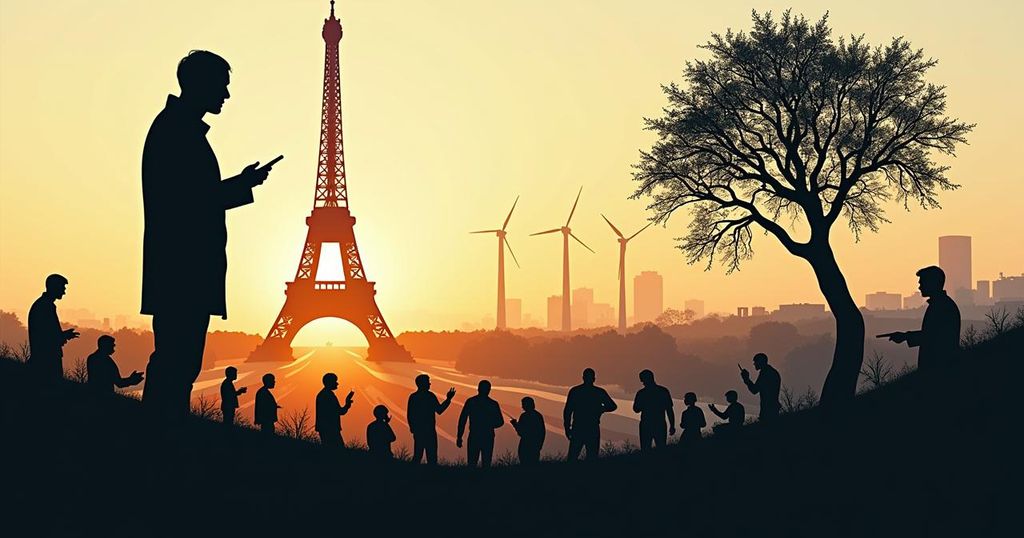Review of ‘Landing the Paris Climate Agreement’ by Todd Stern
“Landing the Paris Climate Agreement” by Todd Stern chronicles the intricate and challenging negotiations leading to the signing of the Paris Agreement in 2015. The book details the important contributions of various nations, characterizes the key players involved, and examines the critical discussions that shaped the agreement. Despite challenges such as the U.S. withdrawal under President Trump, the book underscores the resilience of international climate commitments.
On December 12, 2015, the signing of the Paris Climate Agreement was hailed as a momentous occasion for the planet by then-French President François Hollande. In his book, “Landing the Paris Climate Agreement,” Todd Stern, the former U.S. Special Envoy for Climate Change, provides not only a historical account but also a vivid testimony of the exhaustive journey that led to this landmark agreement. The subtitle of his work, “How It Happened, Why It Matters, and What Comes Next,” signifies the author’s emphasis on the intricate process of negotiation. Stern meticulously chronicles the behind-the-scenes actions that precipitated the agreement, offering readers a glimpse into the personalities, meetings, and exchanges that defined this critical period. His insider perspective is noteworthy, having collaborated with prominent political figures such as Al Gore and Bill Clinton, and marrying into a lineage tied to the Democratic Party through his wife, a former domestic policy advisor to Hillary Clinton. The book details extensive verbatim exchanges from various negotiations leading up to the pivotal UN COP21 summit in Paris. These exchanges illuminate the foundation upon which the Paris Agreement was constructed, notably showcasing how earlier agreements, particularly the U.S.-China bilateral agreement and the Lima COP20 deal, played crucial roles in shaping the final accord. Stern portrays the herculean challenges faced by negotiators, illustrating the complexities involved. For instance, he explores how stealth negotiations with China were deemed necessary and how lesser nations managed to assert their influence amidst the geopolitical tide. He incorporates moments of disarray; the botched 2009 COP15 summit in Copenhagen stands out vividly with its implausible occurrences, including President Obama’s unexpected intervention at a clandestine meeting and the dramatic protests by Venezuelan negotiator Claudia Salerno. While these moments provide a narrative flair, much of the negotiation process entailed tedious discussions over minute details, demanding focus from the reader. Stern adds character to these exchanges by describing the individuals involved, their quirks, and the environments in which they operated, making the narrative both engaging and relatable. The relationship between Stern and his Chinese counterpart, Minister Xie Zhenhua, highlights the interpersonal dynamics within negotiations. Stern recounts attempts to shield Xie from criticism and reflects on their evolving rapport, culminating in Xie addressing him as “younger brother.” These relationships are fundamental to understanding the nuances of diplomatic negotiation. The latter part of the book discusses the Paris negotiations themselves, which devolved into protracted discussions characterized by careful attention to language. As the negotiations unfolded, readers gain appreciation for the sharp distinctions between terms such as “shall” versus “should,” which were pivotal in determining the treaty’s binding nature. Regrettably, the book’s structure could have been enhanced by offering a succinct summary of the agreement’s key points, as it mostly relies on chronological narration. Ultimately, despite the later withdrawal of the United States by President Donald Trump, the resilience of the Paris Agreement was evident as the global community continued its endeavor in climate action. By the conclusion, readers are left with an expanded understanding of the demanding yet critical role that climate negotiators like Todd Stern play in shaping the future of environmental policy. His account serves not only as a historical document but as a tribute to the work involved in addressing one of the most pressing challenges of our time.
The Paris Climate Agreement represents a significant international effort to combat climate change, aiming to limit global warming to well below 2 degrees Celsius above pre-industrial levels. The negotiations leading up to the Agreement were fraught with challenges, including differing national interests, economic considerations, and the need for cooperative action among a diverse group of countries. Todd Stern played a key role in these negotiations, advocating for effective climate solutions and fostering international collaboration. His book delves deep into the complexities of negotiation dynamics, the importance of bilateral agreements, and the political intricacies involved in achieving consensus.
In summary, “Landing the Paris Climate Agreement” serves as both a comprehensive recount of the foundational negotiations leading to the Paris Agreement and a tribute to the individuals involved in the process. It emphasizes the importance of climate diplomacy in the face of political adversity and showcases the enduring commitment of various nations to addressing climate change. Todd Stern’s firsthand insights contribute significantly to the discourse surrounding climate policy and the imperative for continued global cooperation.
Original Source: earth.org




Post Comment